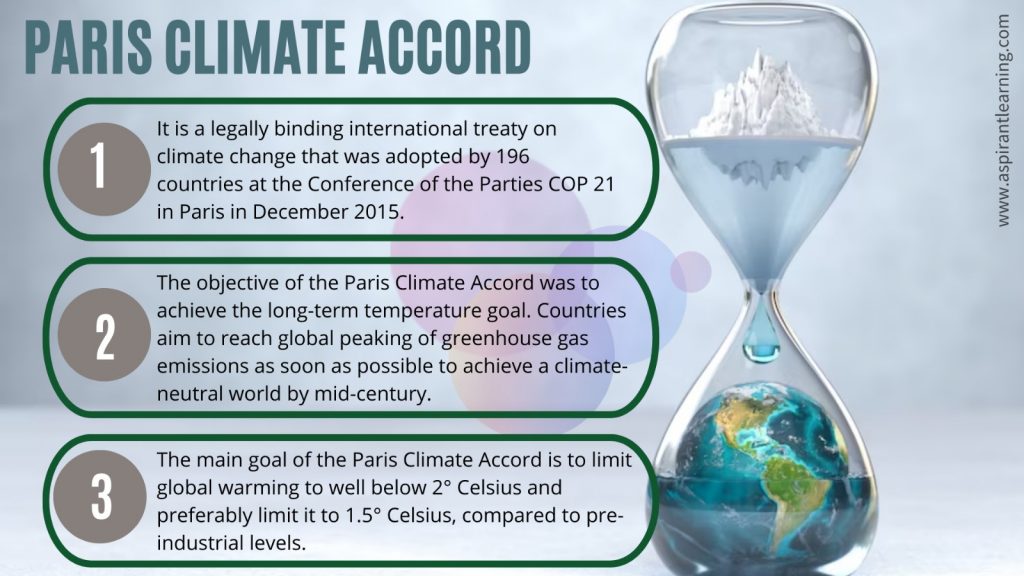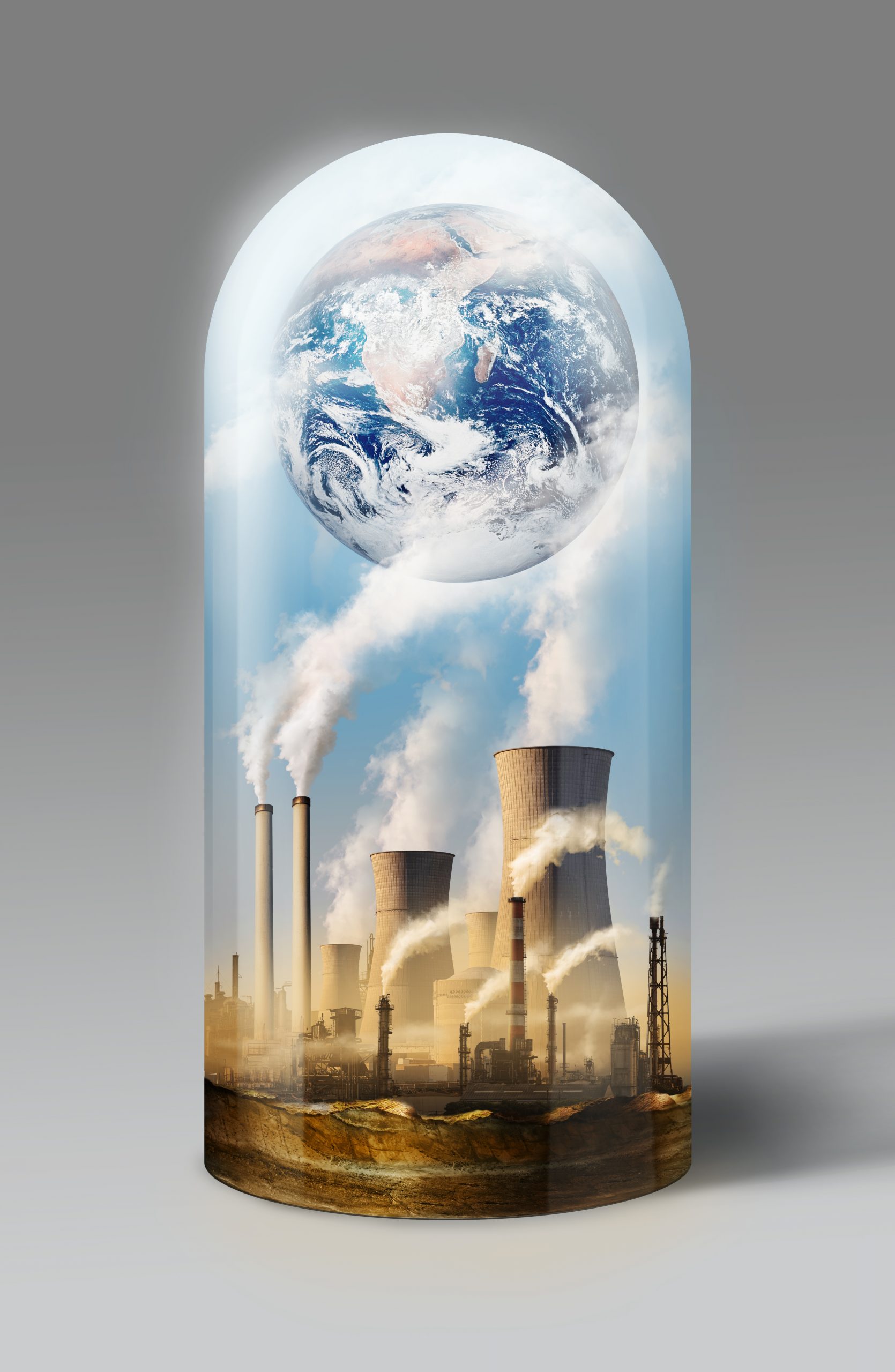News Highlights:
- Effects of Global warming: According to a new study, the planet will likely warm up by two degrees Celsius by 2050, even under a low-emission scenario, suggesting that we may fail to uphold the Paris Agreement.
- The findings of the research, published in Proceedings of the National Academy of Sciences on January 30, 2023, contradicted projections from the Intergovernmental Panel on Climate Change (IPCC).
- IPCC predicted that the world will likely warm up by 2°C by 2050 only under a high-emission scenario.
Key Takeaway:
- The Paris Agreement aims to limit the rise to below 2°C while pursuing efforts to limit the increase to 1.5°C.
- The world has recorded a 1.1°C rise in temperature compared with the average in 1850-1900.

Key Findings of the study:
- Estimated temperature rise:
- There is a higher chance that the world will likely warm up by 2°C under the low emission scenario compared with the IPCC AR6 (Sixth Assessment Report) synthesis assessment and may fail to uphold the Paris Agreement.
- The new findings projected that the world could touch 2°C by 2050 under the high-emission scenario, 2049 and 2054 in the intermediate and low-emission scenarios, respectively.
- The Paris Agreement aims to limit the rise to below 2°C while pursuing efforts to limit the increase to 1.5°C.
- The IPCC estimated that the 1.5°C threshold could be attained as early as the 2030s under all emission scenarios.
- IPCC estimated the likelihood of touching 2°C of global warming during the mid-21st century is high under a high-emission scenario.
- 1.5°C threshold:
- Global warming is already on the verge of crossing the 1.5°C threshold, even if the climate-forcing pathway is substantially reduced in the near term.
- 1.5°C will reach somewhere between 2033 and 2035 in the high, intermediate and low emission scenarios.
- Global warming impacts:
- Warming above the threshold of 1.5°C can cause a broad range of climate risks, such as impacts on human health, economic growth, crop yields, coastal and small island communities, terrestrial and marine ecosystems, and the frequency, intensity and cost of extreme.
- Need for Limiting global warming:
- Limiting warming to 1.5°C will reduce the number of people frequently exposed to extreme heat waves by about 420 million.
- It can also reduce the probability of drought and risks related to water availability.
Global Warming:
- About:
- Global warming is a gradual increase in the temperature near the earth’s surface.
- This phenomenon has been observed over the past one or two centuries.
- This change has disturbed the climatic pattern of the earth.
- However, the concept of global warming is quite controversial, but scientists have provided relevant data supporting the fact that the earth’s temperature is constantly rising.
Causes of global warming:
- Man-made Causes
- Deforestation
- Use of Vehicles
- Chlorofluorocarbon
- Industrial Development
- Agriculture
- Overpopulation
- Natural Causes:
- Volcanoes
- Water Vapour
- Melting Permafrost
- Forest Blazes
Effects of Global Warming:
- Temperature Rise:
- Global warming has led to an incredible increase in the earth’s temperature.
- Since 1880, the earth’s temperature has increased by 1 degree.
- This has increased the melting of glaciers, which has led to an increase in the sea level. This could have devastating effects on coastal regions.
- Ecosystem:
- Global warming has affected the coral reefs, which can lead to the loss of plant and animal lives.
- An increase in global temperatures has made the fragility of coral reefs even worse.
- Climate Change
- Global warming has led to a change in climatic conditions.
- There are droughts in some places and floods in some.
- This climatic imbalance is the result of global warming.
- Spread of Diseases
- Global warming leads to a change in the patterns of heat and humidity.
- This has led to the movement of mosquitoes that carry and spread diseases.
- High Mortality Rates
- Due to an increase in floods, tsunamis and other natural calamities, the average death toll usually increases.
- Also, such events can bring about the spread of diseases that can hamper human life.
- Loss of Natural Habitat
- A global shift in the climate leads to the loss of habitats of several plants and animals.
- In this case, the animals need to migrate from their natural habitat, and many even become extinct.
- This is yet another significant impact of global warming on biodiversity.
Pic Courtesy: Freepik
Content Source: Down To Earth



